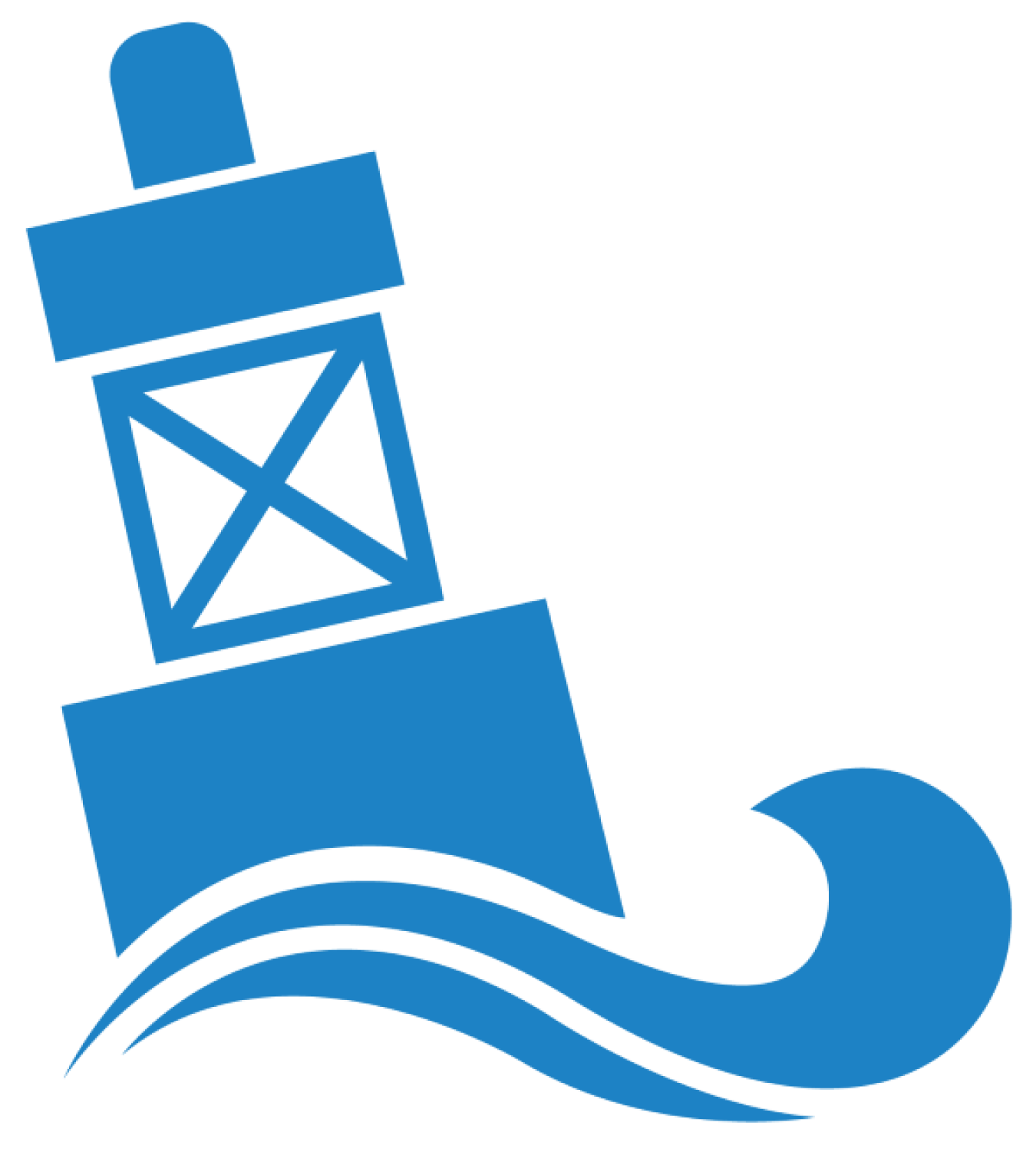Competitors completed the Waves to Water Prize and produced some of the first wave-powered desalination prototypes to ever be deployed.
Water Power Technologies Office
March 1, 2023Marine Energy Program
Powering the Blue Economy Initiative
Project Name: Waves to Water Prize
Project Team: National Renewable Energy Laboratory (lead) and Coastal Studies Institute
Participating Communities: Nags Head, North Carolina

In Fiscal Year 2022, the U.S. Department of Energy’s Water Power Technologies Office (WPTO) celebrated the finale of the Waves to Water Prize—a competition designed to accelerate the development of small, modular, wave energy-powered desalination systems—and awarded Oneka Technologies the $500,000 grand prize for its Oneka Snowflake, the Wave-Powered Watermaker device. Prize competitors produced some of the first wave-powered desalination prototypes to ever be deployed and illustrated opportunities for future marine energy desalination research, like adaptable and resilient mooring systems to anchor devices in place.
The Waves to Water Prize enabled teams to design and build systems that have the potential to address coastal resiliency challenges, like providing clean water in disaster and recovery scenarios, as well as in water-scarce coastal and island locations. The prize awarded a total of $1 million to the four teams that competed in the DRINK Stage and represents the first time WPTO and the National Renewable Energy Laboratory (NREL) supported a competition to develop and test devices that can turn ocean water into drinking water using the power of ocean waves.
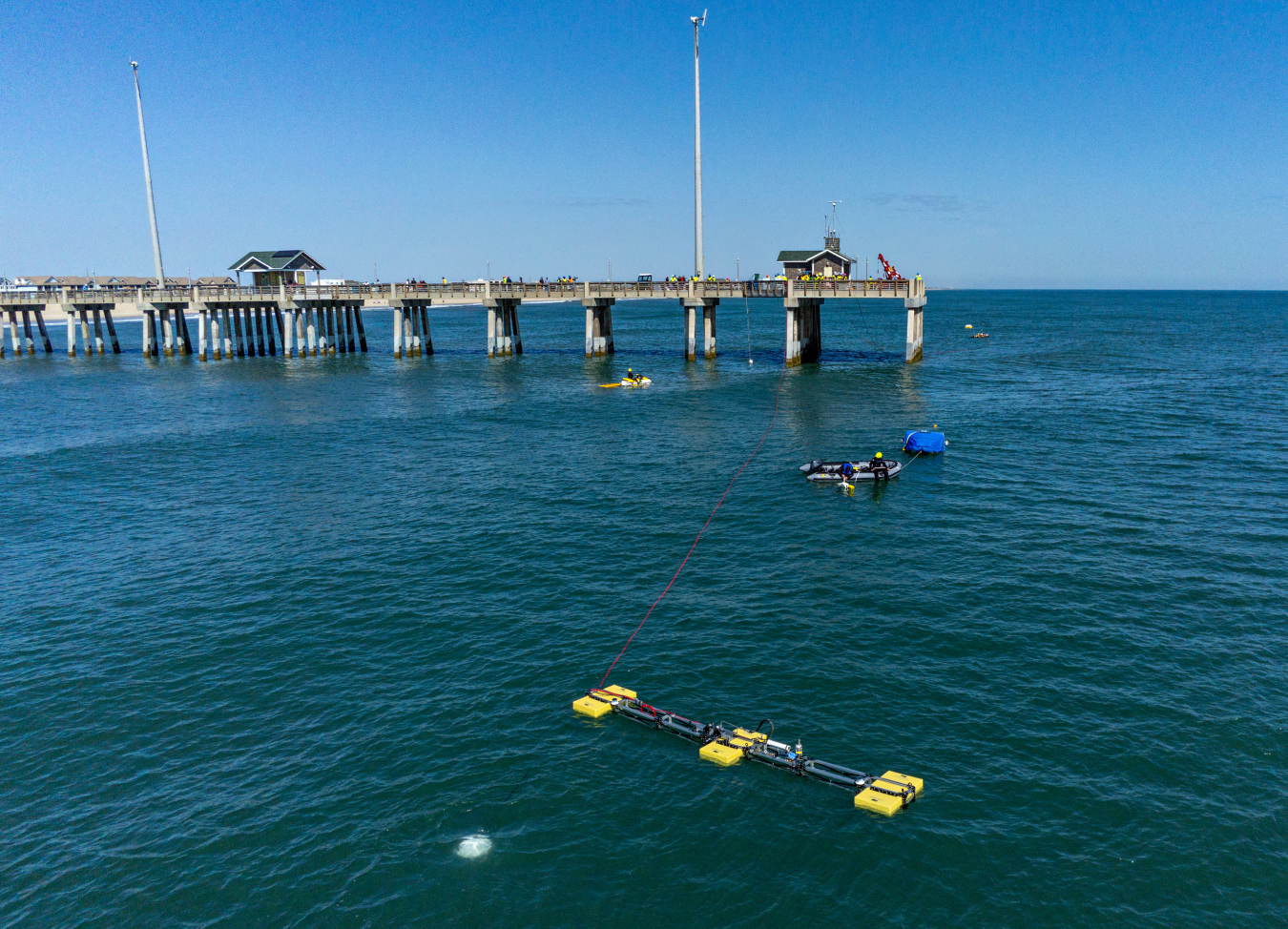
During the DRINK Finale event, the competitors’ wave-powered desalination devices were safely and successfully deployed in the waters surrounding Jennette’s Pier, which sits on the shores of Nags Head, North Carolina. Each of the following devices produced desalinated water while harnessing wave power from the Atlantic Ocean:
- MarkZero Prototypes’ rapidly deployable MZSP Freshwater Production System features pivoting arms, inflatable pontoons, an onboard, reverse-osmosis system (which turns salt water into fresh water), and a constant-pressure, variable-moment pump, all designed to meet the changing demands of diverse ocean conditions.
- Oneka Technologies’ Oneka Snowflake, the Wave-Powered Watermaker, is a raft-like device that can be assembled without tools. Easy to install and adaptable to most ocean conditions, the Snowflake has the potential to produce up to 7,000 liters of clean water per week, which is especially important for disaster and recovery situations.
- Project 816’s Ballast, Buoys, and Borrowing from Archimedes device can be deployed in a variety of site conditions by just two people with common equipment and basic tools. The inflatable, raft-based wave energy converter—built with commercial, off-the-shelf components—powers a land-based desalination system.
- WATER BROS’ Wave Actuated, Tethered, Emergency Response, Buoyant Reverse Osmosis System is a wave-powered device that has a unidirectional, rotational wave-energy conversion mechanism. Optimized for emergency response, the device is rapidly deployable, low cost, and highly resilient, and uses near-shore waves to generate clean drinking water in even the harshest conditions.
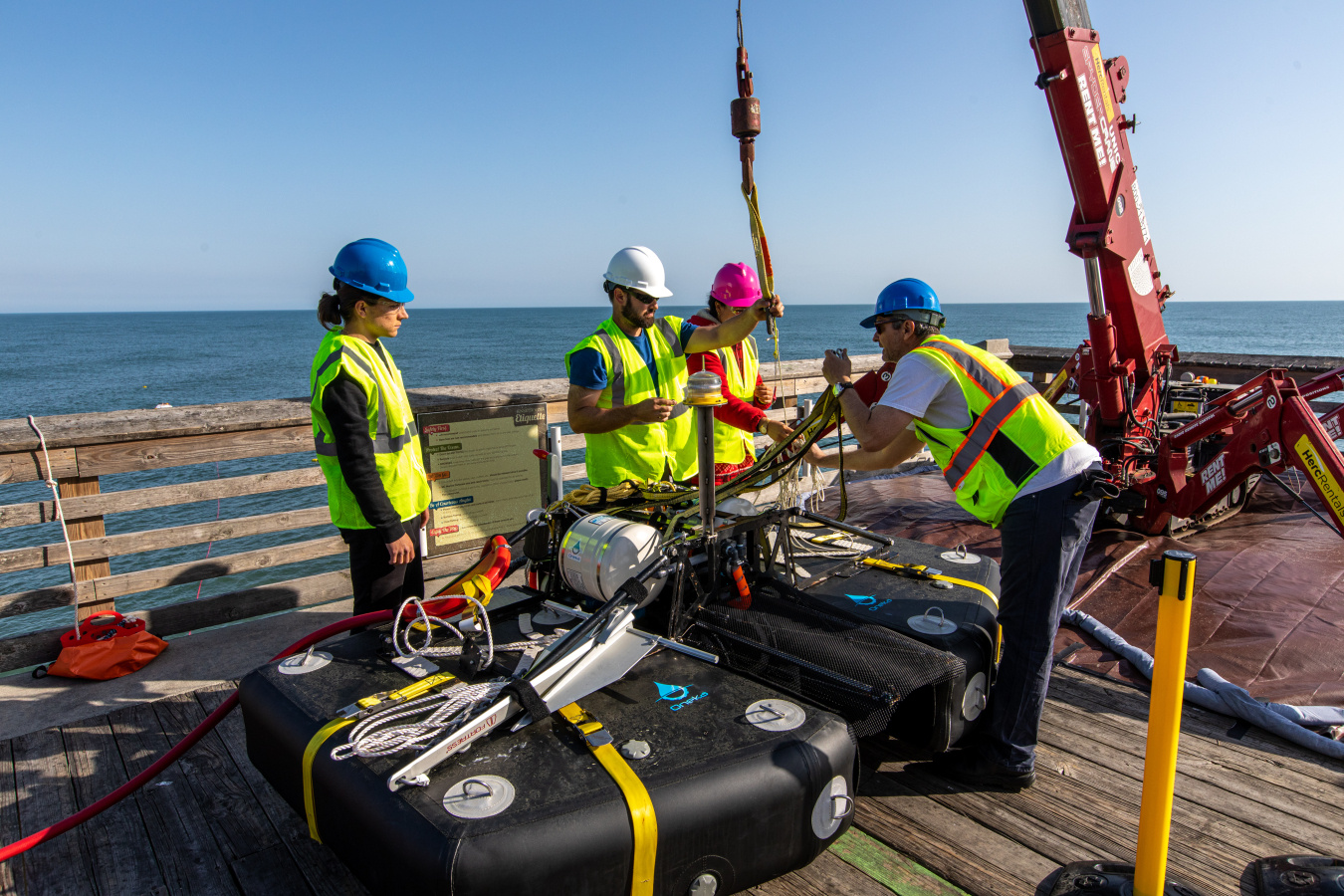
In addition to the $500,000 grand prize and $229,000 in category prizes awarded to Oneka Technologies, the following teams were also awarded for their devices’ accomplishments:
- Team WATER BROS received $178,000.
- Mark Zero Prototypes LLC received $58,000.
- Project 816 received $35,000.
The DRINK Finale was the result of a partnership between WPTO, NREL, and the Coastal Studies Institute, which hosted the prize finalists at Jennette’s Pier. These organizations also worked closely to help ensure a fair and safe competition—successfully installing and retrieving competitors’ wave-energy desalination systems.
Powering the Blue Economy Initiative Projects
-
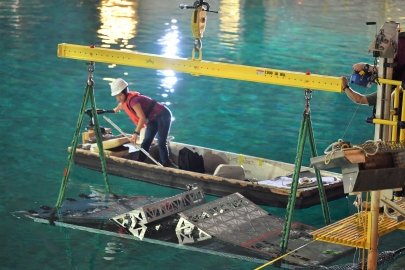 Ocean Observing Prize Awards BUILD Contest Innovators Investigating Rechargeable Underwater VehiclesDOE announced three winners of the Ocean Observing Prize’s BUILD Contest. In June, competing teams concluded this contest by testing their marine energy-powered ocean observing prototypes in a state-of-the-art wave tank.
Ocean Observing Prize Awards BUILD Contest Innovators Investigating Rechargeable Underwater VehiclesDOE announced three winners of the Ocean Observing Prize’s BUILD Contest. In June, competing teams concluded this contest by testing their marine energy-powered ocean observing prototypes in a state-of-the-art wave tank. -
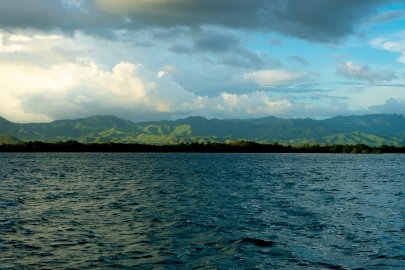 DOE announced 12 competitively selected remote and island communities for the second Energy Transitions Initiative Partnership Project cohort.
DOE announced 12 competitively selected remote and island communities for the second Energy Transitions Initiative Partnership Project cohort. -
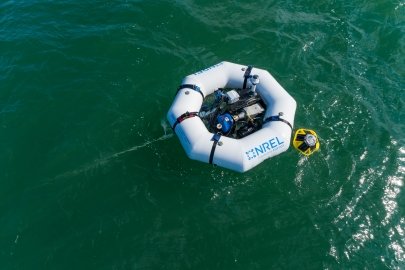 The National Renewable Energy Laboratory deployed its first wave-powered desalination test device in North Carolina’s Outer Banks.
The National Renewable Energy Laboratory deployed its first wave-powered desalination test device in North Carolina’s Outer Banks.
WPTO's Marine Energy e-newsletter shares news and updates on tools, analysis, and emerging technologies to advance marine energy.
The WPTO e-newsletter brings funding opportunities, events, publications, hydropower, and marine energy updates directly to your inbox.


